
Did you miss the Atlassian Team 2022 event? No worries, we’ve had staff members attend both physically, and digitally! We’re big believers that efficient teamwork should be a priority goal for every organization.
Consequently, we were excited to see what the future of Agile collaboration looks like.
Besides, as certified & trusted Atlassian partners, we also needed to see which other products would be great for our clients. SMBs, enterprises, local businesses; Atlassian software solutions are natural fits for all of them.
Whichever niche your company is in, we’re convinced that you could redefine the way your cross-departmental teams work. Effectiveness, min-maxing, getting better results faster.
You need to focus on such KPIs if you’re looking to scale and expand. So, whenever you’re ready to adapt to the future, just get in touch with us. We’re eager to hear from you and to discuss how Atlassian products will boost the productivity of your teams.
Table of Contents
- New Products Announced at Atlassian Team ’22
- Cloud Infrastructure Improvements
- Other Key Takeaways From Atlassian Team ’22
- We’ll Prepare You For Future
New Products Announced at Atlassian Team ‘22
Atlassian Team ‘22 had 3 big reveals. For practical purposes, treat items 2 and 3 as part of the same package, as they work in tandem.
- Atlassian Atlas (formerly Team Central)
- Atlassian Data Lake
- Atlassian Analytics
These new products will directly tackle challenges that modern businesses are attempting to solve. All of them are centered around the acquisition, management and dissemination of information.
While there are already dedicated software tools from Atlassian around handling information, the products above will take everything to the next step.
For example, Atlas will provide instant reports across multiple Atlassian tools, and for different projects.
Data Lake & Analytics are already able to fetch data from Jira Software & Jira Service Management, with all other Atlassian tools to follow in the coming days. Moreover, these solutions will even work across product instances!
Atlassian Atlas
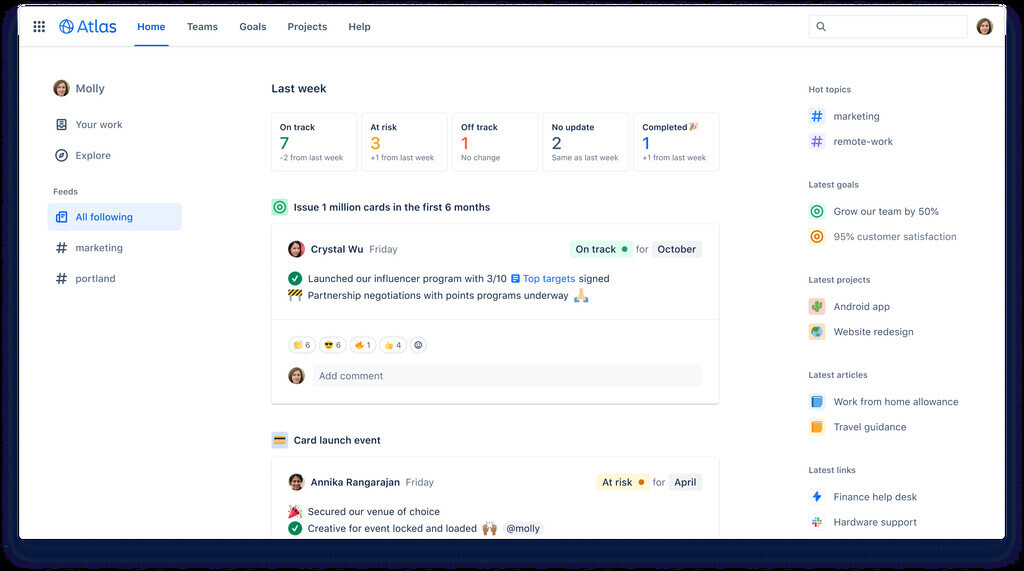
One of the biggest back-and-forths of project management are status updates. Who is doing what, why, by when, with whom, and so forth. The more projects you have, the more stakeholders there are, the harder this gets.
In comes Atlas to save the day. Atlas connects the dots between teams, their work, and their used Atlassian apps. You know the status of any project at a glance, which drastically increases efficiency.
Atlas puts the status of all your staff’s work in a single user interface, where you can easily see what’s on track, what’s delayed, and what’s soon going to be off track.
With Atlas, you get all the details without having to put in any effort. The software aligns teams by giving them a visual method of sharing updates and opening up communication channels.
Do you have specific goals or topics that are more important than others? Mark them on the right side of the dashboard. Click on them to see all relevant information brought up instantly. No manual labor, no headaches.
Main benefits
- Bridge the gap between tasks and results.
- Visualize outcomes and the needed steps.
- Motivate teams by showing the tangible goals they’ve accomplished.
- Receive bite-sized updates that give you only the needed information to completely understand current statuses.
- Connect all team members and departments; create links between them and their work.
- Get automated reports of progress, goals, milestones, delays, etc; no need to ask anyone.
- Break projects into quarterly goals. See progress updates for each segment in particular.
- Create individual profiles for employees that showcase all their work and involvement in projects.
- Tie in Atlas with Jira Software “Epics” for even simpler work visibility.
- Receive updates right in Slack, Microsoft Teams or other places (many integrations available).
Atlassian Data Lake + Atlassian Analytics
Business decisions should be based on data-driven insights. Data Lake and Analytics will help you fetch information from anywhere within the wider “Atlassian platform”.
Their purpose is to help teams work seamlessly across projects in other Atlassian tools by bridging them all together in one place. Resource allocation, velocity, return on investment and more; these tools will place all of that information at your disposal, analyzing ALL work that’s being done.
So, there’s 2 parts to the matter.
Atlassian Data Lake
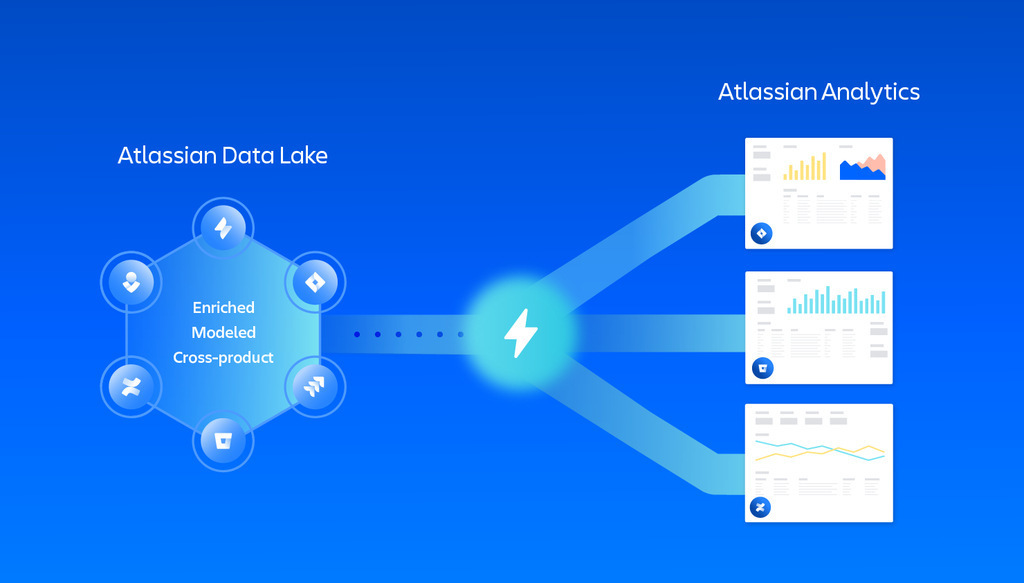
You’ll no longer have to parse contextual data yourself or create custom reports. No lengthy work sessions in which you’re simply gathering information to create analytics.
No custom APIs, and no scripts to fully understand your business status. Data Lake takes care of that with its pre-modelled and enriched fields.
Right now, it can scan Jira Software and Jira Service Management boards, but the capability will extend to all Atlassian products.
Atlassian Analytics
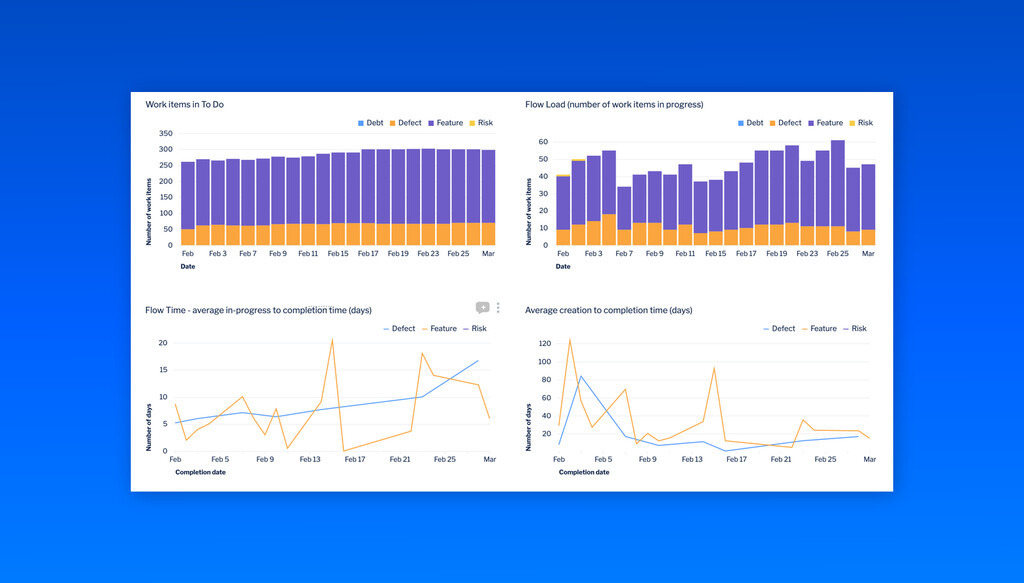
Where Data Lake is the “techy” side that fetches data, Analytics lets you access and visualize it via either SQL or even no-code.
It’s all cloud-based, providing you a simple and flexible information hub that can be accessed at any time. Additionally, the link between Analytics and Data Lake is maintained constantly, giving you real-time information.
For example, instant pie charts of tasks that are in the “Backlog”, “To do” and “QA” sections of Jira. What’s more, you can analyze these insights in a variety of ways.
- Interactive dashboards for cross-project and cross-product overviews. Everything from time-to-market, to blockers, to team load statistics.
- Dashboard and chart customization via SQL visualizations (SQL queries against Data Lake’s information).
- No-code exploration of data and chart creation. For example, connect tasks statuses from Jira Software with Bitbucket updates without using any SQL.
- Compare data directly from your Atlassian tools with personal business charts and documented revenue growth. Detect & solve any discrepancies with ease.
Cloud Infrastructure Improvements
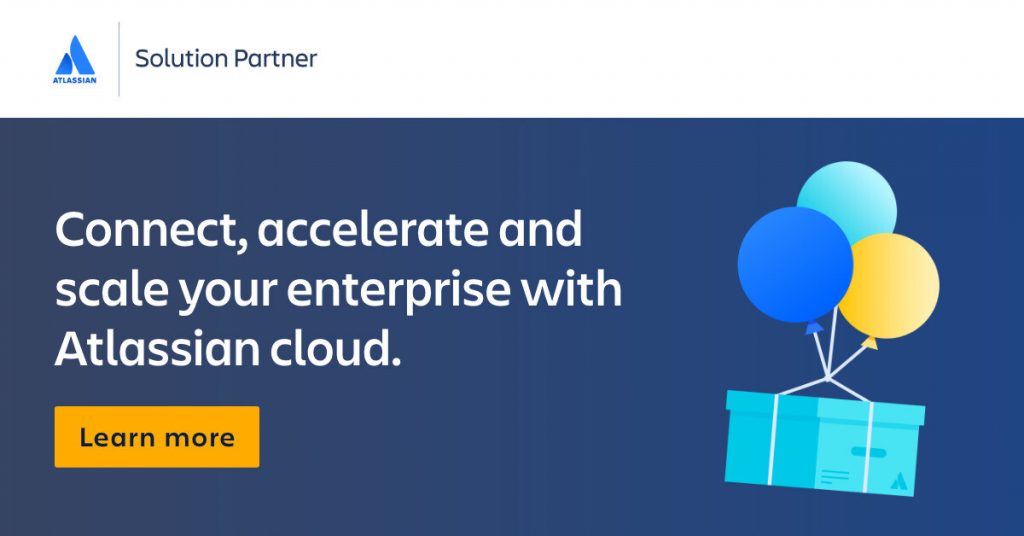
Data residency was a major discussion point. Many of Atlassian’s customers had mentioned the critical importance of information security and compliance to local laws in their industries.
Think of organizations in the military or banking sectors. They need to know where their sensitive information is stored, and to guarantee physical access to the server too if needed.
So, cloud hosting will now be available in 4 more countries:
- Canada
- Japan
- UK
- Germany
Furthermore, customers will be able to choose where their data is stored. And to top it all off, Atlassian cloud instances can now support up to 50,000 users! This will be a game changer for multinational enterprises.
While these were the main announcements of Atlassian Team 2022, other business-centric topics were addressed as well. In the following sections, we’ll give you a gist of them.
Other Key Takeaways From Atlassian Team ‘22
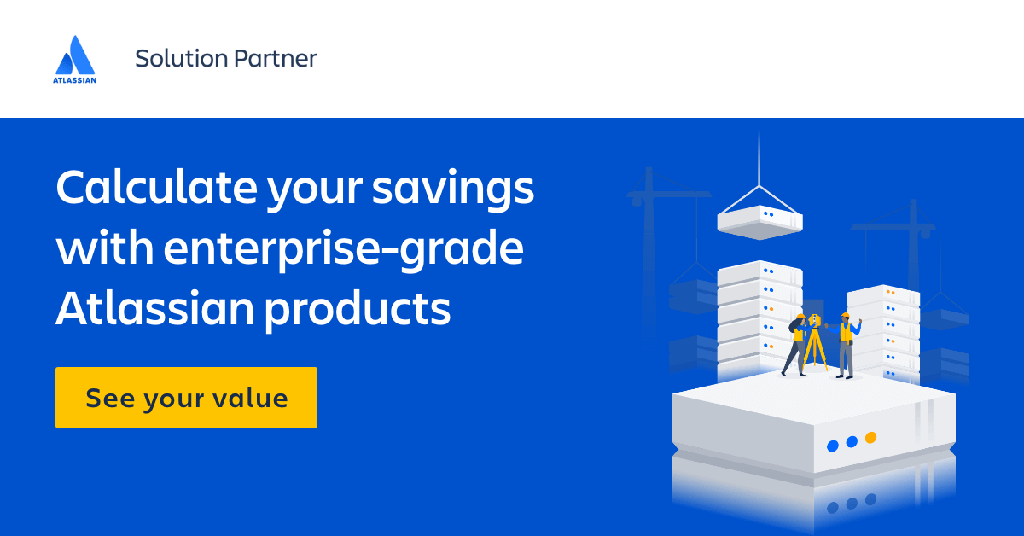
Being the company’s annual flagship event, Team ‘22 brought together leaders, thinkers and innovators from across the globe.
As technology becomes a more and more important pillar of how business is done, companies must ask themselves how to approach digital transformation. You might think that the answer lies in a complex business strategy…and you’d be wrong!
In fact, the main topic of the event says it all: “Culture eats strategy for breakfast”. You must plan ahead, sure, but you must also achieve that plan with efficiency.
The event was centered around 4 main topics:
- Agile & DevOps
- ITSM
- Teamwork Culture
- Open Work Management
The reality of present day markets forces companies to either adapt and survive, or fail. Failure itself doesn’t have to be instantaneous either.
You could be slowly going down a slope without even realizing it. Gradual loss of quality, siloed teams, underpar flow of information, troublesome communication, etc.
At the event, Atlassian underlined yet again that any company who looks to the future should understand its core principles. Work has to be segmented, tasks must be transparent and trackable, teams and staff must be willing to collaborate with each towards common goals.
This is true no matter the industry that an organization is a part of. Software development agencies, marketing agencies, design & UI/UX, sales, ops, HR, finance, etc.
There’s always a better way to work for everyone, and the 4 principles discussed by Atlassian are how this can be achieved.
Agile & DevOps
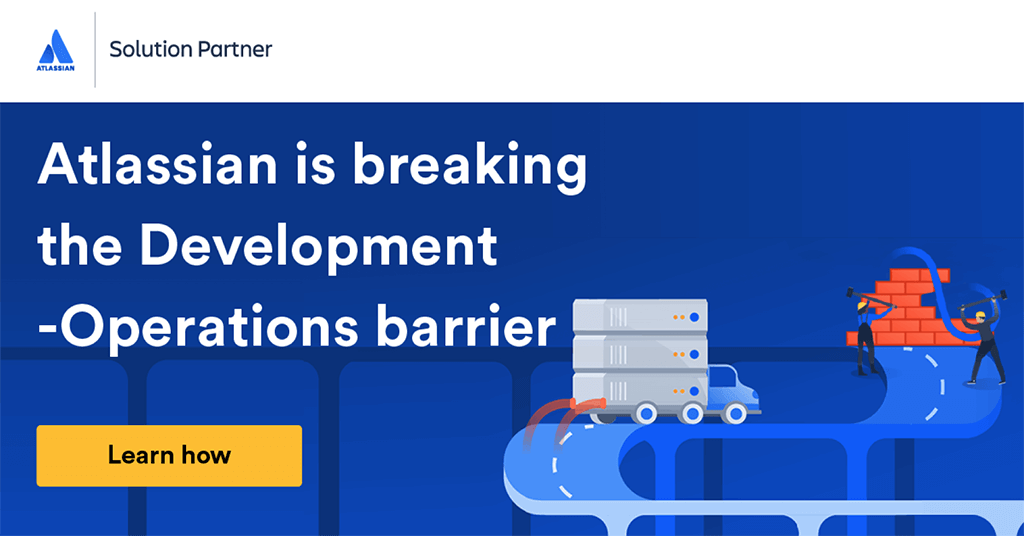
Modern software is complex. Whether we’re talking mobile, web, or computer programs, you have to know how to break up projects in segments. Agile workflows allow and encourage real-time collaboration, with great transparency and trackability.
Moreover, both concepts promote flexibility and dynamism. Work is sorted into “sprints”, which can easily be organized, managed and tracked through kanban or scrum boards.
At the same time, DevOps also empowers software teams to cooperate on and improve their code via tools such as GIT and Atlassian Bitbucket.
Finally, these concepts greatly simplify reporting. They empower information centralization, especially when powered by tools like Jira Software.
ITSM
Digital transformation simply can’t happen without ITSM. High velocity IT teams are needed both for your own staff, as well as for customers. Urgency is key, as time wasted equals money lost.
ITSM streamlines workflows and processes for IT teams. This doesn’t mean just past-paced, dynamic IT support, but a complete decentralization of teamwork. ITSM means that everyone knows their role and what they must do, without relying on management or hierarchy.
ITSM aligns IT personnel with company goals and other departments, reduces strategic costs, and increases the value you get out of your IT infrastructure.
The easiest way to achieve this is with Jira Service Management and Opsgenie.
Teamwork Culture
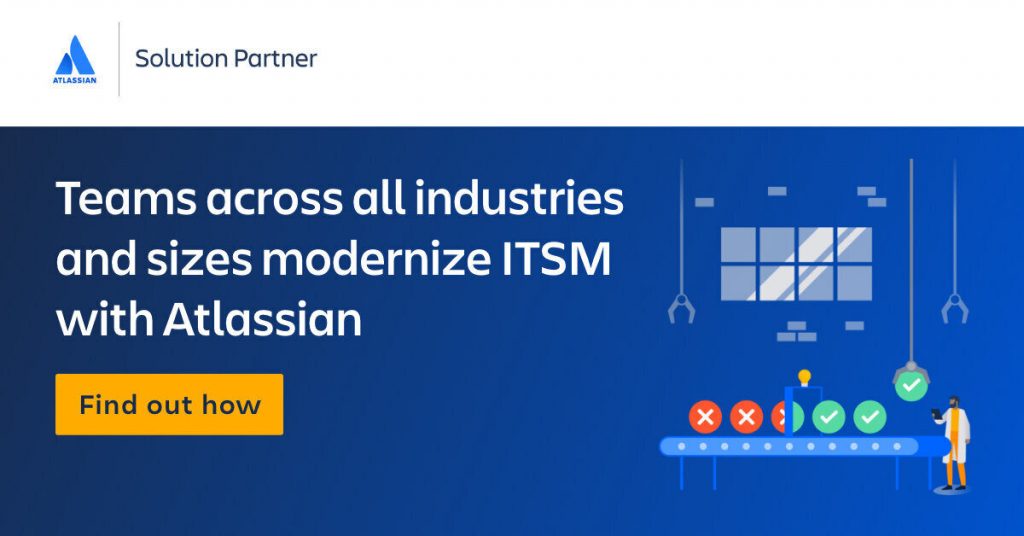
Businesses aren’t made from lone wolves. Each team member brings their own knowledge, skills, and talents to the table. However, every single one of your employees is going to do just that.
In order for the organization to prosper, you must assure that everyone’s consciously contributing to the same goal. Many times, teams tend to silo themselves from others and create personal objectives.
Atlassian reminded us yet again that we can’t think like that. We’re all in it together, and our cross-team work invariably affects the business as a whole.
So, the teamwork culture should be centered on interconnectivity. On engagement between all departments in a collaborative manner.
One simple way for high-performing teams to stay in the loop and share information is with Atlassian Confluence.
Open Work Management
As a company evolves, so do its practices. More value is brought to customers because the teams themselves become more valuable. However, this constant state of improvement also implies increasingly complex workflows.
The better the quality of the product/service, the harder it is to achieve it. Right? No!
If you’re working the Atlassian way, then you’ll see no difference between serving 3 customers or 300 customers. It’s all about how you organize your workflows and task allocation. If you want to become a pro at it fast, choose Jira Work Management.
Flexibility, coordination, collaboration; all of it at the click of a mouse. JWM puts task allocation and correlation in front of everyone, with an easy-to-manage view thanks to the kanban board.
Plan, execute and deliver without headaches with Atlassian solutions.
We’ll Prepare You For The Future
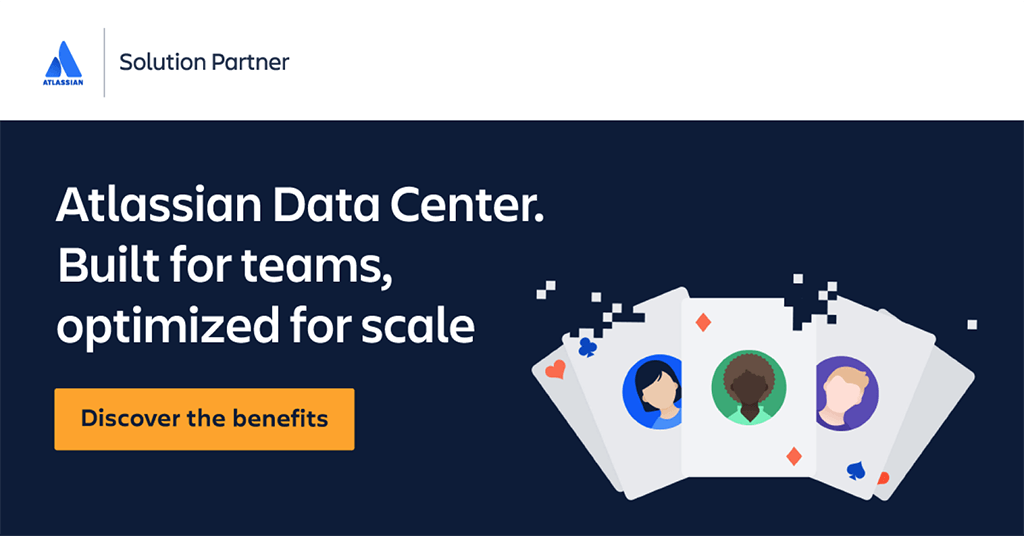
At Wesrom, we’re trusted Atlassian partners. We completely share in their vision, from bringing teamwork innovations in our own company, to helping our client’s digital transformation too.
Our experts are highly trained at implementing Atlassian solutions and migrating data to them from existing tools. Additionally, we can help you acquire any product at a special discount!
Are you looking to transition to Atlassian tools? Jira, Confluence, Bitbucket, Opsgenie, Confluence, Trello? Or, do you have the basics done already and are interested in the newer products we described in this article?
Either way, we’ll get it done. Just get in touch with us with the form below, and let’s talk about how you can improve your business.
